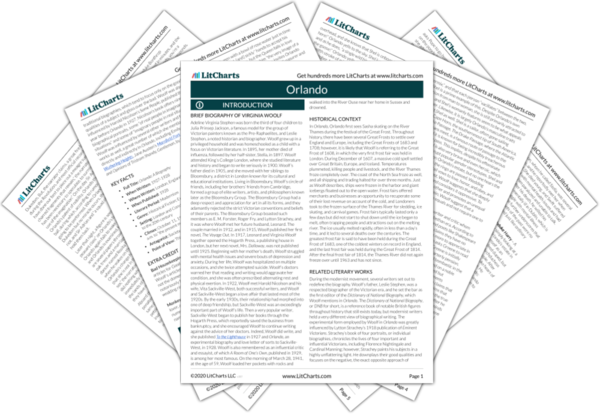Previous
Marmaduke Bonthrop Shelmerdine, Esquire / Shel
|
Previous
Marmaduke Bonthrop Shelmerdine, Esquire / Shel
|
Nicholas Greene Character Analysis |
Next
Alexander Pope
|
“Ah!” he said, heaving a little sigh, which was yet comfortable enough, “Ah! my dear lady, the great days of literature are over. Marlowe, Shakespeare, Ben Jonson—those were the giants. Dryden, Pope, Addison—those were the heroes. All, all are dead now. And whom have they left us? Tennyson, Browning, Carlyle!”—he threw an immense amount of scorn into his voice. “The truth of it is,” he said, pouring himself a glass of wine, “that all our young writers are in the pay of booksellers. They turn out any trash that serves to pay their tailor’s bills. It is an age,” he said, helping himself to hors d’oeuvres, “marked by precious conceits and wild experiments—none of which the Elizabethans would have tolerated for an instant.”
